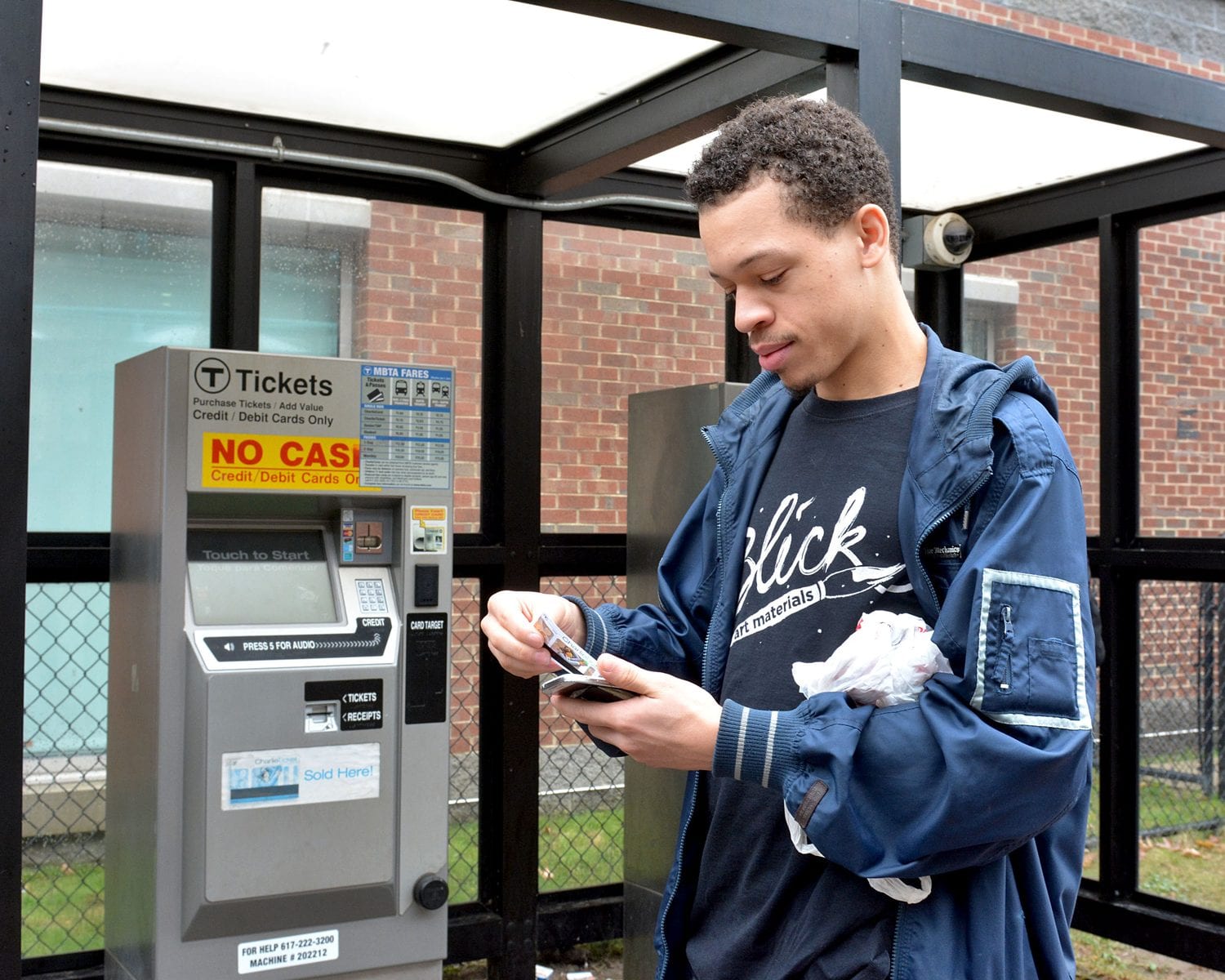Photo By PAULA MULLER
Damien Coley, Lynn, checks his ticket before boarding the bus at the T stop at Market Street in Lynn.
By THOR JOURGENSEN
LYNN — With a new year dawning, Lisa Johnson has to make the hard choice of figuring out how to reduce her grocery costs and other expenses in the face of prospective mass transit fare hikes.
The Lynn resident pays $50 a month to commute, by bus, to her job at Marshall’s in Revere. But the Massachusetts Bay Transportation Authority, according to a State House News Service report, will soon consider fare hikes of up to 10 percent on average.
“I might have to take away from what I spend on food to pay for it,” Johnson said.
Potential fare hikes also mean changes in the way Lynn resident Daquari Payas lives his life.
The KIPP Academy sophomore frequently travels to Malden and Everett, but said he will weigh travel habits against fare hikes if the increases become reality.
“It probably means you are less likely to get to where you want to get,” Payas said.
Long plagued by financial problems, Eastern Massachusetts’ principal transportation system is faced with a projected $242 million budget deficit, the News Service reported last week. The Fiscal and Management Control Board set up to make money decisions for the MBTA is prepared to make up a substantial portion of the deficit with own-source revenues and savings.
Quoting the Control Board’s annual report, the News Service stated the board believes it has “identified sufficient operating budget savings” so the state Legislature can limit its special appropriation to the MBTA at the $187 million provided in fiscal 2016.
“There’s got to be a balance between asking taxpayers who never use the T to pay the bills and asking riders who use it every day to pay the bills,” the News Service quoted state Transportation Secretary Stephanie Pollack as saying.
Payas’ older brother, Damien Coley said that savings effort should be offset by providing reduced ridership prices for “people who travel all the time” on the MBTA. The former Lynn resident attends college in Boston but frequently takes trains or buses to visit his mother in Boston.
“I’ve seen the prices go up from $1.20 to $2.10. It makes it a little more of a challenge,” Coley said.
Edward Findlay of Lynn rides the bus twice a week to shop for food and said the MBTA should apply the same savings standards to its operations that he applies to his grocery budget. Although the transit agency has scoured its route network for potential savings, Findlay thinks transit officials could do a better job matching routes with demand for service.
“It seems it costs a lot of time and money to get out and about,” he said.
The control board, which was created this year and its members appointed this summer after a series of winter failures on the T, acknowledged in the report that it faced tough choices in the months ahead.
“Reducing, and soon eliminating, the MBTA’s structural operating budget deficit is an urgent priority, not just as a matter of fiscal responsibility, but to free up funds now going to operating expenses to meet pressing maintenance and other capital needs,” the report said.
Johnson said a good starting point for savings is cracking down on MBTA fare evaders. The more efficiently the MBTA can run, the greater the potential for savings, said Findlay.
“In some places, it’s mass chaos,” he said.
Thor Jourgensen can be reached at [email protected]

